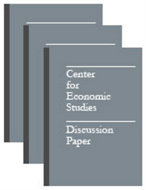Unionization, Employer Opposition, and Establishment Closure
Unionization, Employer Opposition, and Establishment Closure
Abstract
We study the effect of private-sector unionization on establishment employment and survival. Specifically, we analyze National Labor Relations Board union elections from 1981–2005 using administrative Census data. Our empirical strategy extends standard difference-in-differences techniques with regression discontinuity extrapolation methods. This allows us to avoid biases from only comparing close elections and to estimate treatment effects that include larger margin-of-victory elections. Using this strategy, we show that unionization decreases an establishment’s employment and likelihood of survival, particularly in manufacturing and other blue-collar and industrial sectors. We hypothesize that two reasons for these effects are firms’ ability to avoid working with new unions and employers’ opposition to unions. We find that the negative effects are significantly larger for elections at multi-establishment firms. Additionally, after a successful union election at one establishment, employment increases at the firms’ other establishments. Both pieces of evidence are consistent with firms avoiding new unions by shifting production from unionized establishments to other establishments. Finally, we find larger declines in employment and survival following elections where managers or owners were likely more opposed to the union. This evidence supports new reasons for the negative effects of unionization we document.
Others in Series
Working Paper
Working Paper
Working Paper




